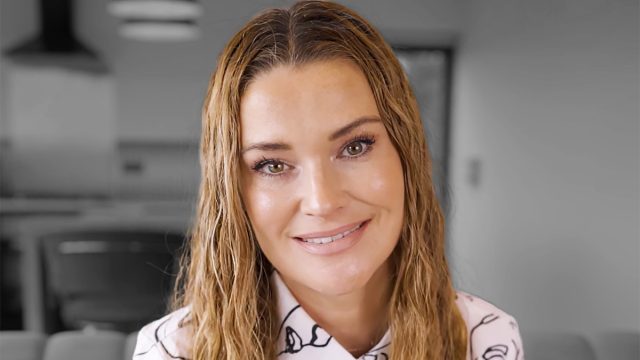8 Foods a Doctor Says to Eat Because "Your Body's Going to Struggle to Hold Onto That as Fat"
Ever notice how some people seem to eat plenty while staying slim? Dr. Sophie Newton, known to her social media followers as Dr Sophie GP, offers a refreshing perspective on weight loss. "Often when you're dieting, you're told about what you should cut out, what you should eat less of, and actually you end up being a bit miserable and hungry all the time and then randomly thinking about food all the time," she explains. In her video guide, she reveals eight specific foods that your body actually struggles to store as fat.
The Science Behind Fat-Resistant Foods
Before diving into specific foods, Dr. Sophie explains that two key nutrients make certain foods naturally resist fat storage: protein and fiber. "There's something called the thermic effect of food. And this is because your body uses calories to digest and break down that food to produce nutrients and energy. And protein has a higher thermic effect of food than carbohydrate and fat." Most importantly, she notes, "Even if you eat too much protein, your body's going to struggle to hold onto that as fat."
For fiber, she explains: "About 90% of us are not eating the recommended amount of fiber. There is insoluble fiber, which means it cannot dissolve in water, and this essentially is like a bulking agent. So the more of it you eat, the more calories you lose. And then the second type of fiber is soluble fiber. This makes you feel fuller and therefore reduces your appetite."
Lean, Unprocessed Meat
Dr. Sophie emphasizes the importance of lean, unprocessed meat as a primary protein source. "Protein takes longer to digest than other nutrients. So it keeps you fuller for longer and more satisfied. So you're less likely to be going over to the snack cupboard and having cravings mid-afternoon," she explains. This includes options like:
- Skinless chicken breast
- Lean beef
- Turkey
- Pork tenderloin.
Fish for Protein Power
Fish features prominently in Dr. Sophie's recommendations as an excellent protein source that's harder for your body to store as fat. She suggests incorporating various types of fish into your diet, both for protein content and overall nutrition.
RELATED: 4 Weight Loss Rules This Top Coach Swears Will Work In 2025, "I've Never Seen This Fail"
Beans and Pulses
"If you're making a meal, try and think how you can add in some beans or lentils," Dr. Sophie advises. "Pulses like this are fantastic at really high protein, high fiber. They're really going to fill you up and you're going to need less calories overall." She specifically recommends:
- Butter beans for pasta sauces
- Chickpeas for curries and salads
- Chili beans for Mexican dishes
- Lentils for soups and stews
Whole Grains
"Switch to whole grains," Dr. Sophie advises. "Rather than having white bread, white pasta, white rice, give a little switch, something that's maybe got nuts and seeds in as well, that's going to be extra protein and extra fiber." Her recommended options include:
- Brown pasta
- Whole grain bread
- Brown rice
- Quinoa.
Nuts and Seeds
While discussing affordable ways to boost nutrition, Dr. Sophie emphasizes the power of nuts and seeds: "You don't necessarily need a lot, but you can think about adding them." She specifically mentions:
- Pine nuts for salads
- Pumpkin seeds for toppings
- Sunflower seeds for snacking
- Flax seeds for added fiber
- Chia seeds for smoothies.
RELATED: Woman Lost Fat in Her 40s by Doing These 2 Things
High-Protein Yogurt
"Switch out your regular yogurt for a high protein version," Dr. Sophie recommends. She particularly emphasizes Greek yogurt, noting you can boost both protein and fiber content by adding toppings. As she suggests:
- Greek yogurt as a base
- Add nuts and seeds for extra protein and fiber
- Top with berries for additional fiber
- Mix in whole grain cereals for more sustaining energy.
Green Bananas
Dr. Sophie shares a surprising tip: "If you're going to have bananas, if you have them all green bananas, that's actually a really good prebiotic to feed your gut bacteria." She explains that this helps support healthy gut bacteria, which research shows can help with weight management.
Oats and Porridge
"When I'm talking about porridge, which you may know as oatmeal, I'm not talking about those packets that are pre-made with maple syrup and this and that," Dr. Sophie clarifies. "I'm talking about the really cheap bags of oats… It's probably the cheapest breakfast you can have, but really high in fiber." She suggests enhancing plain oats with:
- Frozen berries
- Seeds mix
- Nuts
- Plant-based or regular milk.
RELATED: She Lost 12 Pounds in 90 Days by Adding This One Thing to Her Walking Routine
Making These Foods Work for You
"What I want you to get from this is to understand why it's important," Dr. Sophie concludes. She recommends incorporating these foods gradually: "You can actually make this happen for you and your family in a really easy, simple way that isn't also going to cost a fortune."
The key is thinking about protein and fiber content at each meal. By focusing on these eight foods and their variations, you can create satisfying meals that naturally support your weight loss goals without feeling deprived. As Dr. Sophie emphasizes, "You can have a bigger meal, you can make sure you're not hungry, not miserable and dieting." And if you enjoyed this article, take advantage of these 15 Quick Ways to Lose Body Fat Percentage in a Week.





